Commissioner of the Federal Regulatory Commission criticized methods used in OK’ing GTN Xpress natural gas pipeline project
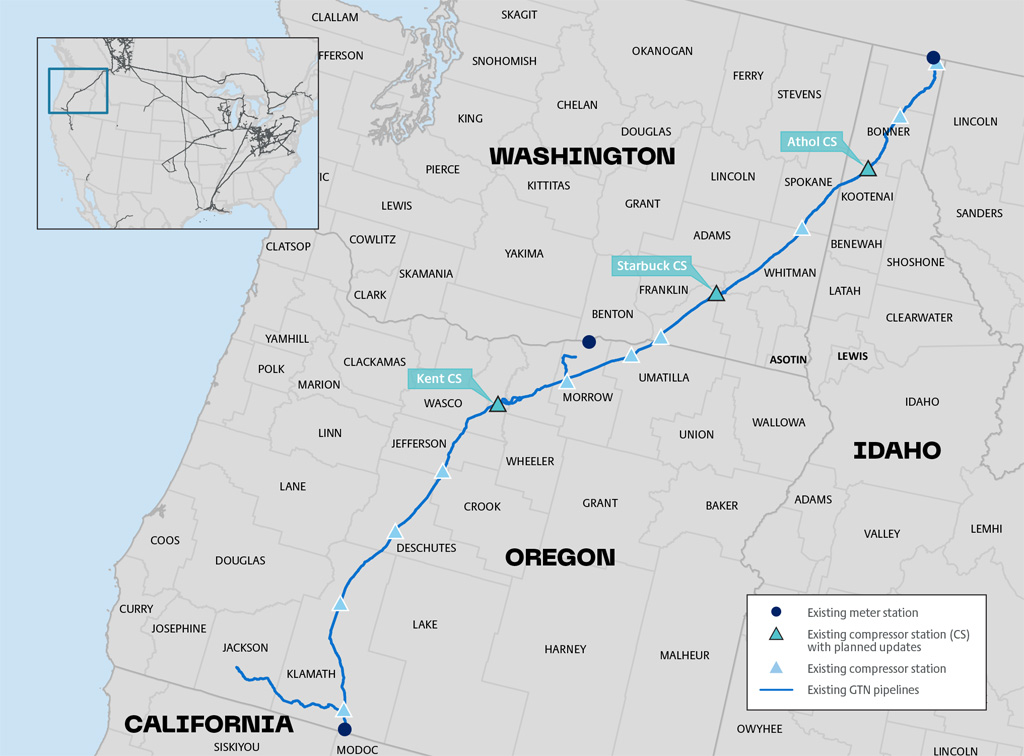
The GTN Xpress pipeline brings Canadian natural gas to consumers in the Pacific Northwest. Map: TC Energy
Kendra Chamberlain. October 31, 2023. Last week, the Federal Regulatory Commission (FERC) created a furor when it approved expansion of the GTN Xpress natural gas pipeline, which will bring more fracked natural gas to the Pacific Northwest.
The pipeline runs through Washington, Oregon and Idaho. The new project will entail upgrades to three compression stations along the existing pipeline in order to deliver an additional 150 million cubic feet of fracked gas per day.
FERC’s approval of a proposal by Calgary-based TC Energy flew in the face of widespread opposition to the project among state officials and residents across Washington, Oregon and California.
Washington Gov. Jay Inslee, in particular, has been a staunch opponent of the project. He’s argued in the past that the project doesn’t serve a public need or interest, that evidence suggests it will harm consumers and that it will leave ratepayers in his state on the hook for a carbon-emitting energy source well after the state will have decarbonized its electricity generation systems.
“This fight isn’t over,” Inslee said in a statement last week. “We are more resolved than ever to keep this pipeline from increasing fossil fuel use.”
TC Energy told federal regulators the upgrades are needed to meet increased demand for natural gas in markets in the Pacific Northwest.
But Inslee has taken issue with that assumption, pointing to state mandates in Washington that require transitions to 100% carbon-free energy generation by 2045 and reduction of greenhouse gas emissions by 95% by 2050.
[perfectpullquote align=”full” bordertop=”false” cite=”” link=”” color=”” class=”” size=””]Klickitat County residents may be forgiven for feeling Inslee is getting a taste of his own medicine.[/perfectpullquote]
Oregon similarly plans to reduce greenhouse gas emissions by 100% by 2040.
Oregon Gov. Tina Kotek also opposes the project, as do the members of Congress from both states, attorneys general from Oregon, Washington and California and the Columbia River Inter-Tribal Fish Commission.
Idaho politicians have largely supported the project, arguing that it would bring much needed expanded natural gas capacity to Idaho customers. Idaho hasn’t set any clean energy or greenhouse gas emissions reductions goals.
Environmental groups Columbia Riverkeeper and Rogue Climate say they plan to file a petition for a hearing for the decision to be reconsidered. Those petitions are due in November.
“The Biden administration needs to take a hard look at how FERC is doing business overall—and needs to change the course of this agency which is pushing fracked gas into a region that doesn’t want it and doesn’t need it,” Dan Serres, advocacy director at Columbia Riverkeeper, told Columbia Insight. “The approval of GTN Express is a stark example of how out of touch FERC is with the work that is happening in the West to try to diminish pollution from fracked gas.”
Whose voice counts?
The decision underscores how disparate federal, state and local perspectives can be on matters of energy policy.
Increasingly, local residents’ concerns about large-scale energy projects are ignored over notions of serving the greater good.
FERC’s commissioners themselves couldn’t agree on whether local laws on decarbonization should be considered when approving projects like GTN Express.
Commissioner Allison Clements published a criticism of the Commission’s finding, arguing that FERC’s approach to determining the “need” of a project is too simplistic given the patchwork of decarbonization policies across the United States.
“[T]he Commission’s approach is becoming increasingly untenable as a combination of market forces and federal, state and local climate protection policies signal potentially flat or declining demand for natural gas over time,” Clements wrote in a partial dissent of FERC’s order, adding that the commission failed to ask for market studies looking at the future demand for natural gas in the region.
Washington has its own history of overriding local concern in favor of big energy projects, as Columbia Insight has reported.
The state’s Energy Facility Site Evaluation Council (EFSEC) recently drew criticism from residents in Klickitat County over the approval of a large-scale solar farm on state land, despite opposition from locals.
No matter which side of the pipeline issue they’re on, residents of Klickitat County may be forgiven if they feel Inslee and others are now getting a taste of their own medicine, with a more powerful government agency bigfooting their authority.


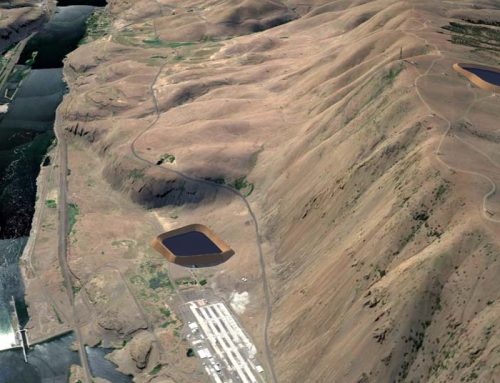
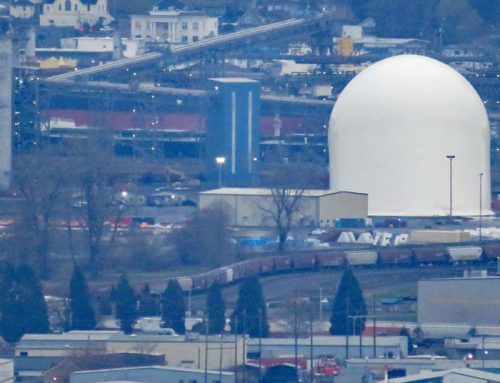
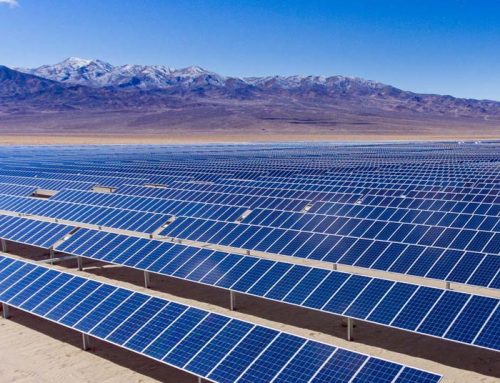
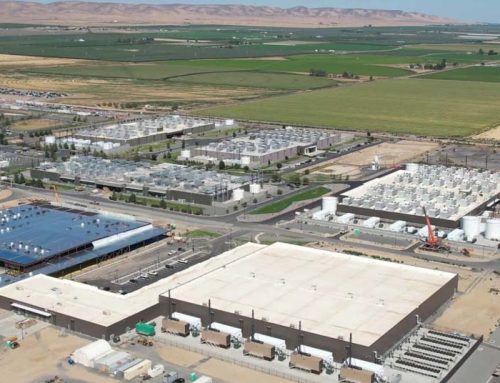
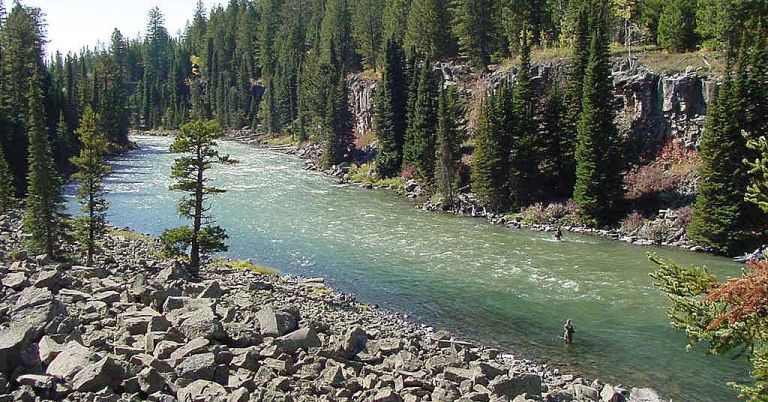
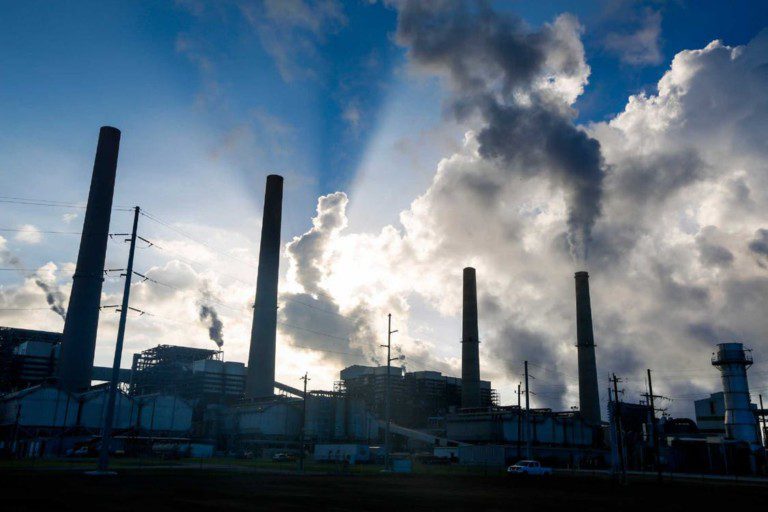
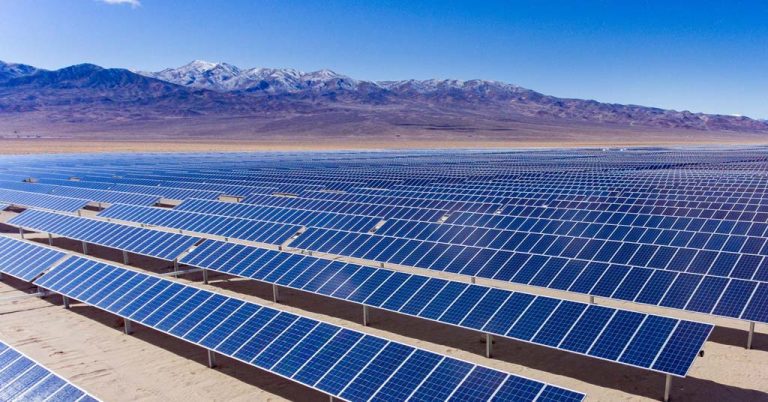
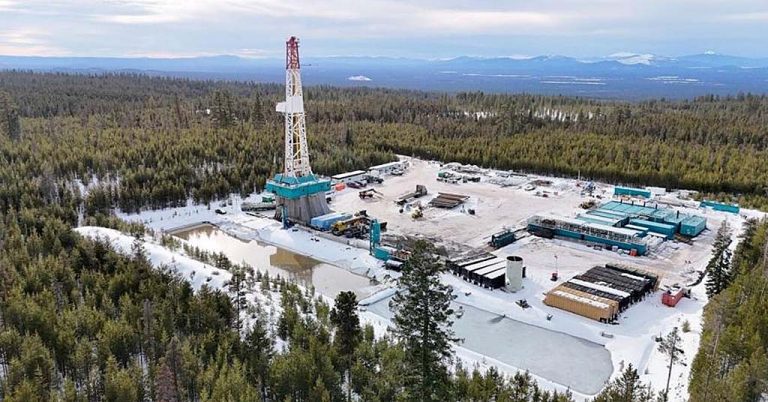


Government needs to listen to residents and stop claim to be speaking for us. If allowed a vote on the issue of so called decarbonization, I think it would be found the end users do not agree with Inslee or the other liberal opinions who claim the people do not want choice and actually prefer natural gas. The effort to shove solar and wind down the throats of the people is in the long run headed for failure.
You left-handed comment about Klickitat County was unnecessary and unprofessional.